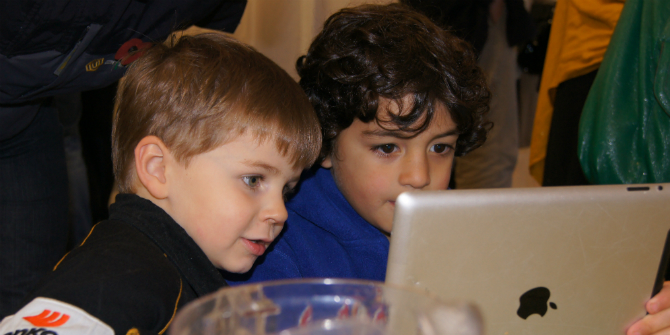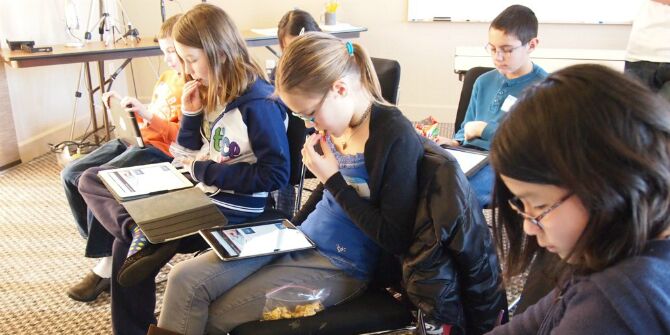 LSE’s Leslie Haddon responds to a 3 March post by Chandni Rani on the Inforrm blog that argued the proposed Online Safety Bill currently in committee in the UK Parliament would be a “big step forward” in protecting children online. He shares recent findings from research into parent-child communication about online content.
LSE’s Leslie Haddon responds to a 3 March post by Chandni Rani on the Inforrm blog that argued the proposed Online Safety Bill currently in committee in the UK Parliament would be a “big step forward” in protecting children online. He shares recent findings from research into parent-child communication about online content.
Based on the current research being undertaken by the European Commission funded EU Kids Online and Net Children Go Mobile (NCGM) research projects, I would just like to qualify some of the point raised by Chandni Rani in her recent post on the Online Safety Bill about the communication between parents and their children. As proposed the Online Safety Bill would oblige for internet and mobile service providers to have filters for adult content as defaults that adults customers can opt out of and contains provisions aimed at helping educate parents about online safety.
Rani’s piece points to the proposals to educate parents about online Safety as one of the most important aspects of the Bill, arguing that it is“ arguably the most effective in keeping children safe online”, and that “there is no substitute for parents taking the responsibility to ensure their child is safely surfing online”. While increased efforts to educate parent are to be applauded, it is worthwhile pointing out that in the surveys we have conducted and the in-depth interviews we are currently conducting in the UK it is clear that we have already been quite successful in getting this message across.
Children in the UK encounter less risk in general than in many other European countries. Our EU Kids Online research showed they are below the European average for seeing sexual images, meeting strangers and sexting, but slightly above it for cyberbullying. The children we are now in the process of interviewing refer to their parents’ discussions and rules about ‘inappropriate content’ (the main element of which is sexual images).
In fact one of the problems for the children is that when they accidentally encounter this material, which happens, they are not so much worried by it as worried that their parents will find out and thinking they were searching for it may lose trust in them. It is almost surprising how often this is mentioned. I suspect some of the children would welcome filters for this reason, although as the Chandi Rani blog notes, filters sometimes do not work. Children can also be baffled about why they were blocked when doing some searches.
It is also clear from our research that we should not be overly concerned by children’s competences in relation to those of their parents. In fact that issue is itself more complicated – even parents with generally good internet skills are not necessarily familiar with the particular applications and modes of communication used by children. Nevertheless, it is clear from our surveys that most parents, including those who know less about the workings of the internet, still communicate with their children about online risks. According to our NCGM survey 66% talk to their children, and 69% explain the potential dangers of websites. They do give advice and as a result most UK children, 72% in our survey, say that their parents do have a good idea about what they do online.
So while I would concur with the on-going need to keep parents informed about the internet, the above gives a fuller picture of what is currently happening, and indicates that parental knowledge may not be such a barrier to children being safe online.
This article gives the views of the authors, and does not represent the position of the LSE Media Policy Project blog, nor of the London School of Economics. Full details of the research mentioned by the author can be found in the following: “Risks and safety on the internet: the perspective of European children: full findings and policy implications from the EU Kids Online survey of 9-16 year olds and their parents in 25 countries”; and “Net Children Go Mobile: risks and opportunities”.





